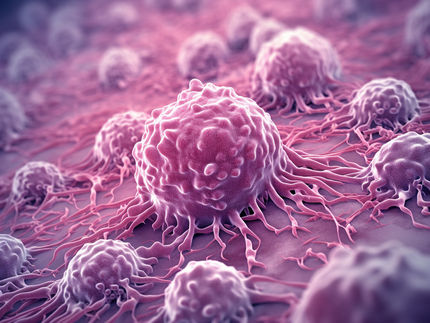Merck and Pfizer to present Avelumab data in seven different cancers
Data featured contributes to growing understanding of the potential role of avelumab in treating a broad range of cancers
Merck and Pfizer announced that avelumab presentations across seven different tumor types, including two oral presentations, will be featured at the American Society of Clinical oncology (ASCO) Annual Meeting. The avelumab presentations, from the rapidly accelerating JAVELIN clinical development program, include new study results from a number of difficult-to-treat cancers, including data from the pivotal Phase II trial of avelumab being investigated as second-line treatment for metastatic merkel cell carcinoma (MCC). Additional data include highlights from mesothelioma, adrenocortical carcinoma, non-small cell lung cancer, and urothelial bladder, gastric and ovarian cancers, as well as updated safety data.
“One of our key highlights for ASCO will be the new avelumab data in second-line metastatic Merkel cell carcinoma,” said Luciano Rossetti, M.D., Executive Vice President, Global Head of Research & Development at the biopharma business of Merck. “As there are currently no approved treatments for this rare and aggressive cancer, these clinically meaningful data represent a breakthrough for this difficult-to-treat tumor type.”
Since ASCO 2015, the collaboration between Merck and Pfizer has made significant progress. The JAVELIN development program for avelumab now includes 30 ongoing clinical programs and nine pivotal studies. As of May 2016, JAVELIN now includes approximately 2,200 patients, being treated across more than 15 tumor types.
“These data add to the growing body of evidence for avelumab, indicating efficacy and a favorable safety profile in multiple cancers, which supports ongoing development,” said Chris Boshoff, M.D., PhD., Vice President and Head of Early Development, Translational and Immuno-Oncology at Pfizer Oncology. “Through our comprehensive JAVELIN clinical development program for avelumab, we are making meaningful advances for a broad range of patients with cancer.”
Avelumab is an investigational, fully human antibody specific for a protein found on tumor cells called PD-L1, or programmed death ligand. As a checkpoint inhibitor, avelumab is thought to have a dual mechanism of action which is believed to enable the immune system to find and attack cancer cells. By binding to PD-L1, avelumab is thought to prevent tumor cells from using PD-L1 for protection against white blood cells such as T-cells, exposing them to anti-tumor responses. Avelumab is also thought to help white blood cells such as natural killer (NK) cells find and attack tumors in a process known as ADCC, or antibody-dependent cell-mediated cytotoxicity.
Other news from the department research and development

Get the life science industry in your inbox
By submitting this form you agree that LUMITOS AG will send you the newsletter(s) selected above by email. Your data will not be passed on to third parties. Your data will be stored and processed in accordance with our data protection regulations. LUMITOS may contact you by email for the purpose of advertising or market and opinion surveys. You can revoke your consent at any time without giving reasons to LUMITOS AG, Ernst-Augustin-Str. 2, 12489 Berlin, Germany or by e-mail at revoke@lumitos.com with effect for the future. In addition, each email contains a link to unsubscribe from the corresponding newsletter.





















































